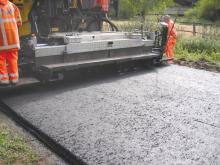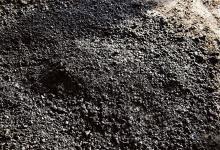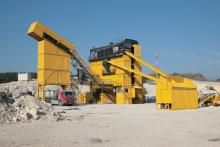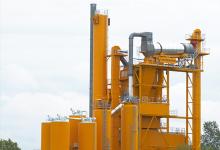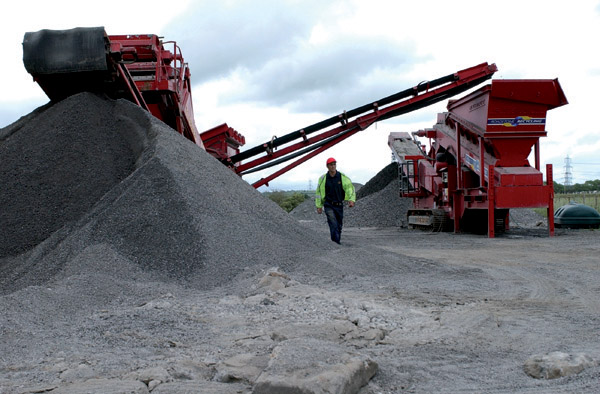
Asphalt and concrete road recycling is on the increase, with rising oil prices making the process more economically viable, writes Alan Peterson
Roads across Europe are using higher levels of recycled content, in both new pavements and in repair and maintenance. Cost is a big factor with recycling, with less spending on imported materials and lower transportation costs (a factor given the current price of fuel). On the time-saving side, there is faster contract completion and less traffic congestion. It is also eco-friendly since recycling in-situ material conserves natural resources.
The European Asphalt Producers Association (EAPA) says about 50million tonnes of RAP (reclaimed asphalt pavement) is produced every year, with a large amount reused and recycled. In many European countries the use of RAP is already common practice; however there are still several European countries where there is hardly any (hot) re-use of RAP. The goal is to have 100% of the RAP reused or recycled, according to EAPA.
In certain countries the costs of producing RAP might be higher than the costs of the equivalent aggregate. If the RAP is not being recycled or re-used it has to be dumped at a landfill site. By taking whole life cycle costs into account there will or should be a fee on dumping. If this fee is high enough the price of RAP will become equal or lower than the equivalent aggregate, argued EAPA.
Tax drivers
Several countries use this mechanism to regulate the prices of secondary materials to stimulate recycling. In the UK the government introduced a levy (tax) on aggregate to boost reuse.
In Sweden a bonus might be given if recycled material is used. But there might also be a deduction. In Gothenburg there is a requirement that the mix must contain 10% of RAP and if the actual amount higher then a 10% a bonus kicks in.
In the Netherlands the cost of asphalt containing RAP is lower than the same quality of asphalt containing only virgin material. Here an infrastructure for hot mix recycling has been in place since the 1970s, with over 95% of all asphalt plants suitable for hot mix recycling.
In the Netherlands the success factors for recycling are based on two decades of a recycling policy, which is a combination of economy and a governmental policy.
This led the Dutch to develop the concept of "sustainable development". The basic premise is that material cycles should be closed (use, reuse, re-reuse, etc) so that there is less disposal and less consumption of non-renewable natural materials. Recycled materials are considered products and not wastes. This means that the product will exhibit a typical product life cycle in the marketplace.
In the UK John Barritt, aggregates technical advisor at WRAP (Waste & Resources Action Programme), said, "If climbing oil prices increase the cost of bitumen there will be a greater saving from putting recycled asphalt into hot asphalt production processes which gain a benefit from reactivating the bitumen within the recycled asphalt.
"From a UK perspective it is not likely to have much impact on the overall level of recycling but it will increase the value of recycled asphalt," he added.
Barritt pointed out that within the UK, asphalt planings are virtually 100% recycled as aggregates in unbound (sub-base or capping) or bound (hot or cold process asphalt) applications.
He said the Highways Agency's Specification for Highway Works permits a recycled asphalt content of 10% for hot surface course asphalt and up to 50% for hot binder course and base asphalts.
"Surface courses present more technical issues due to the need to manage skid resistance of aggregates in the new surface and the consequent need for certainty of performance of the recycled asphalt used."
Barritt said that in practice hot base and binder course recycled asphalt content tends to be in the 10% to 20% range to deal with variability in recycled asphalt feed stock and asphalt plant production process restrictions.
He added, "On the other hand cold process asphalt using foamed bitumen or bitumen emulsions can utilise 100% recycled asphalt as well as generating lower carbon emissions."
UK asphalt production is around 26 to 28million tonnes per year and although there are no definitive figures, the industry considers that between 10% ands 20% of new asphalt contains recycled asphalt. The quantity of asphalt planings arising annually within the UK is thought to be between 5 and 7million tonnes.
"By comparison the UK aggregate market is around 280million tonnes/year of which 25% is met with aggregates from secondary and recycled resources. This is the highest proportion within the EU," said Barritt.
Recycled concrete aggregate offers the concrete paving industry a significant chance to increase the rate of recycling and the specifications to do so are now in place. The use of recycled concrete aggregate in cement-bound bases is increasing in the UK and cost and environmental benefits have been recognised. But the next challenge is to use recycled concrete in quality pavement layers. This has already been achieved elsewhere. Typically, the recycled material is used as granular fill, base course for new pavement, or as aggregate to strengthen new concrete pavement.
European research
There is much research to promote environmentally friendly materials, from laboratory work to performance modelling based on field validation. A
A new programme about to start is DIREC_MAT. The objective here is to share, at a European level, knowledge and practices on recycling road and closely-related road waste with the aim of ensuring an environmentally-friendly and sustainable end-of-life for road infrastructure.
Research into road material recycling processes has led to various levels of practical implementation. Unfortunately, the national experiences developed across Europe almost never benefit other European countries. This is especially true for the newer Member States.
According to
This database will not only offer information to stakeholders on facilitating the correct re-use of road and closely-related road waste products back into roads without generating health impacts, but will also provide technical and scientific information for
Lastly, such a tool will make it possible to better identify outstanding research needs in this area. The Danish Road Institute has been a leader in imparting knowledge about recycling of road materials for use in road construction for a long time. The possibilities are described in reports, articles and some uses are presented in Road Standards. Four new reports have been published, where current European standards are incorporated.

